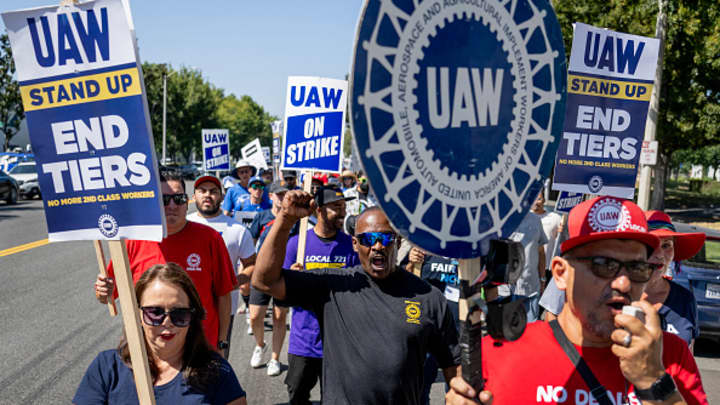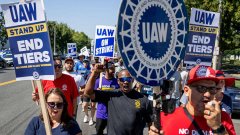
Fain previously said the union would increase the work stoppages, based on progress in the contract negotiations. The talks have from both sides of the bargaining table.
Before the Friday announcement, GM and Stellantis in particular had grown increasingly frustrated by a lack of participation from Fain and what they said were delays in receiving counterproposals from the union, people familiar with the negotiations told CNBC.
Unlike past strikes, UAW leaders opted for targeted strikes at select plants instead of initiating national walkouts. It's calling the work stoppages a nod to historic "sit-down" strikes by the UAW in the 1930s.
The strategy is in an effort to keep the automakers on edge in an effort to pit them against one another to achieve better contracts, according to last week involving the UAW's communications director.
The messages, which described a strategy to cause "recurring reputations damage and operational chaos" for the companies, were heavily criticized by the automakers.



